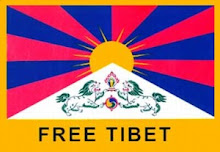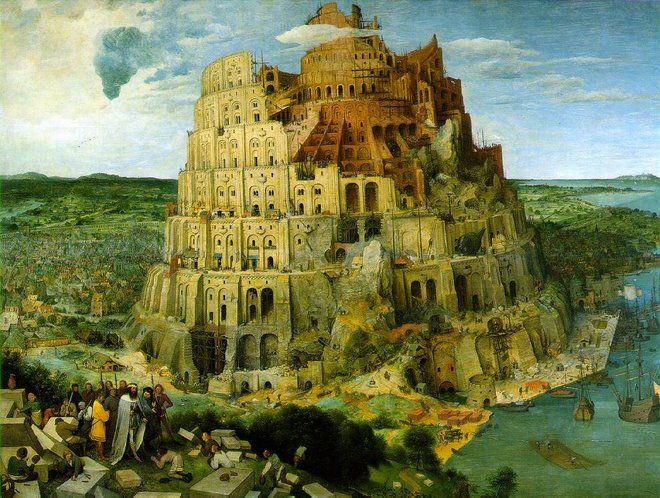 «Moğollar (The Mongols) was established in December 1967 when Aziz Azmet (vocal, guitar), Murat Ses (hammond organ), Cahit Berkay (guitar, saz, tambur), Hasan Sel (bass) and Engin Yörükoglu (drums) joined forces to rock the Turkish music scene. Less than a year later, Hasan quit and Taner Öngür took his place. In February 1968 they released their first single. They spent the entire year of 1969 travelling all over Anatolia making themselves known and became very popular. At the same time they set the stage for a new kind music that was to be called "Anatolian Rock." With this music evolving as an alternative to then prevailing music style which merely imitated the West's, they decided to create a unique form of rock music by taking advantage of the already rich musical heritage in Anatolia. Moğollar defined Anatolian Rock as a mutual adaptation of rich colours (rhythm, melodies) in Anatolian folk music and modern popular music. In an interview published in a popular music magazine in 1970, they explained their style and objectives as follows: "What we want to prove is that our folk music has a spirit of orchestration. Also, the proximity of our folklore to our kind of rock music... Our under-developed pop music would gain some strength of character by uniting with advanced technology and our rich folklore. Our aim with Anatolian rock is to blend advanced technology with unique folklore elements..." For a while they only produced rock music. Moğollar style. In September 1970 Moğollar went to Paris to produce an LP for the Guilde Internationale du Disque and a single for CBS (Behind the Dark-Hitchin') Moğollar became what seemed to be a reaction to stagnation by musicians who had decided that it was time to stop imitating the music of the western world. Moğollar incorporated Anatolian rhythms, harmonies, and instruments into their music. In 1971 they won the French Academie Charles Cros Grand Prix Du Disque (previously bestowed upon Jimi Hendrix and Pink Floyd) for their album Danses et Rhythmes de la Turquie d'hier a'Aujourd' hui. In January 1971 they returned to Turkey and performed concerts for the first four months and then they proceeded to work together with singers such as Cem Karaca and Baris Manco. They produced a few singles, performed live concerts and appeared on several TV shows. Moğollar continued their work for five more years, going abroad from time to time and working with many different groups. They disbanded in 1976, and the ensuing years of political turmoil and military coups in this Middle-Eastern country appeared to all but thwart what had been a thriving Anatolian rock scene.
«Moğollar (The Mongols) was established in December 1967 when Aziz Azmet (vocal, guitar), Murat Ses (hammond organ), Cahit Berkay (guitar, saz, tambur), Hasan Sel (bass) and Engin Yörükoglu (drums) joined forces to rock the Turkish music scene. Less than a year later, Hasan quit and Taner Öngür took his place. In February 1968 they released their first single. They spent the entire year of 1969 travelling all over Anatolia making themselves known and became very popular. At the same time they set the stage for a new kind music that was to be called "Anatolian Rock." With this music evolving as an alternative to then prevailing music style which merely imitated the West's, they decided to create a unique form of rock music by taking advantage of the already rich musical heritage in Anatolia. Moğollar defined Anatolian Rock as a mutual adaptation of rich colours (rhythm, melodies) in Anatolian folk music and modern popular music. In an interview published in a popular music magazine in 1970, they explained their style and objectives as follows: "What we want to prove is that our folk music has a spirit of orchestration. Also, the proximity of our folklore to our kind of rock music... Our under-developed pop music would gain some strength of character by uniting with advanced technology and our rich folklore. Our aim with Anatolian rock is to blend advanced technology with unique folklore elements..." For a while they only produced rock music. Moğollar style. In September 1970 Moğollar went to Paris to produce an LP for the Guilde Internationale du Disque and a single for CBS (Behind the Dark-Hitchin') Moğollar became what seemed to be a reaction to stagnation by musicians who had decided that it was time to stop imitating the music of the western world. Moğollar incorporated Anatolian rhythms, harmonies, and instruments into their music. In 1971 they won the French Academie Charles Cros Grand Prix Du Disque (previously bestowed upon Jimi Hendrix and Pink Floyd) for their album Danses et Rhythmes de la Turquie d'hier a'Aujourd' hui. In January 1971 they returned to Turkey and performed concerts for the first four months and then they proceeded to work together with singers such as Cem Karaca and Baris Manco. They produced a few singles, performed live concerts and appeared on several TV shows. Moğollar continued their work for five more years, going abroad from time to time and working with many different groups. They disbanded in 1976, and the ensuing years of political turmoil and military coups in this Middle-Eastern country appeared to all but thwart what had been a thriving Anatolian rock scene. In January 1993 Cahit Berkay, Taner Öngür and Engin Yörükoglu put the band together again. A series of newspaper articles in a leading Turkish newspaper requesting the band to reform, and the idea of inspiring a new generation of Turkish musicians, prompted Moğollar to get their act back together again. They performed their legendary comeback concert in Istanbul on the 30th of May 1993. Their subsequent CD, Moğollar '94 proved the group hadn't lost any of its fury or fire. When they performed atop a 35-foot-high concrete stage in front of a crowd of about 1,000 at an amusement park surrounded by rollercoasters, cotton candy vendors and fireworks-the scene was suitably dramatic. Moğollar did not disappoint their loyal fans; they rocked out on tunes written by Asik Veysel, traditional folk songs and their own material, particularly Kesisleme, a scorching instrumental featuring Cahit Berkay on saz. Berkay also playing bowed tambour and guitar (an instrument that he picked up in the early 1960s after hearing Hank Marvin of the Shadows). Bandmate Engin Yörükoglu is a master of the drums and darbuka, (it's said he's the best drummer in Turkey) while Taner Öngür plays bass. The original members of Moğollar have been joined by 24-year-old keyboardist Serhat Ersöz and today they continue to regularly please their audience in Jazz Stop, which is owned by Engin Yörükoglu, and still appear live in concert all over Turkey and Europe. With their second wind, they've begun writing songs about the social, ecological and human rights problems of Turkey.» (Progressive.homestead.com – where you can find more info, interviews with the band, complete discography, great pics, etc.)
In January 1993 Cahit Berkay, Taner Öngür and Engin Yörükoglu put the band together again. A series of newspaper articles in a leading Turkish newspaper requesting the band to reform, and the idea of inspiring a new generation of Turkish musicians, prompted Moğollar to get their act back together again. They performed their legendary comeback concert in Istanbul on the 30th of May 1993. Their subsequent CD, Moğollar '94 proved the group hadn't lost any of its fury or fire. When they performed atop a 35-foot-high concrete stage in front of a crowd of about 1,000 at an amusement park surrounded by rollercoasters, cotton candy vendors and fireworks-the scene was suitably dramatic. Moğollar did not disappoint their loyal fans; they rocked out on tunes written by Asik Veysel, traditional folk songs and their own material, particularly Kesisleme, a scorching instrumental featuring Cahit Berkay on saz. Berkay also playing bowed tambour and guitar (an instrument that he picked up in the early 1960s after hearing Hank Marvin of the Shadows). Bandmate Engin Yörükoglu is a master of the drums and darbuka, (it's said he's the best drummer in Turkey) while Taner Öngür plays bass. The original members of Moğollar have been joined by 24-year-old keyboardist Serhat Ersöz and today they continue to regularly please their audience in Jazz Stop, which is owned by Engin Yörükoglu, and still appear live in concert all over Turkey and Europe. With their second wind, they've begun writing songs about the social, ecological and human rights problems of Turkey.» (Progressive.homestead.com – where you can find more info, interviews with the band, complete discography, great pics, etc.)Links in comments











2 comments:
Disc 1) http://sharebee.com/aefbdaee
Disc 2) http://sharebee.com/cad0fb42
I love Turkish rock from the 70s, so this is another gem to discover. Thanks!
If you're interested in works of Erkin Koray that you might not yet have, check out my blog. Cheers
Post a Comment